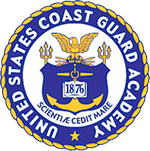Where Can You Play
At what level, based upon your ability and skill level (academics and athletics) could you reasonably expect to make the recruiting roster?
NCAA D-I, II, III, NAIA, JUCO
If you get this question wrong, you seriously risk going "un-recruited"!
This is probably the toughest question that you should be asking yourself...even tougher is getting the right answer. The simple fact that you are pursuing a college scholarship demonstrates your confidence. That's great, however this question is not about confidence, it's about being realistic and honest with yourself and the coaches. Like an IQ test, but a little different you need to know your AAQ or Academic - Athletic - Quotient™. With your academics and athletics where can you play, realistically?
Be a realistic contender for the scholarship. Do you have the academic and athletic skills to meet the standards of the college that you're pursuing? If your academic and or your athletic abilities are not on par with the school you're pursuing, be honest with yourself and maybe consider alternatives. RM2P would NEVER discourage any student athlete from pursuing their dreams. However, we wouldn’t be coaching you appropriately if we didn’t state the facts. The simple fact is that if you don't meet the recruiting standards for a college you won’t get a scholarship. That's not to say that you aren't perfectly suited to play somewhere else. Academically, it's your GPA, SAT/ACT scores and your ranking in your class. This can be easily determined working with your high school counselor. Ask yourself, athletically how do you stand against your target schools’ roster for your position? Pick a player at your position or role and look at his/her height, weight, biography, etc., get a feel for where you stand in comparison. If you think that what you bring matches (or exceeds) them you're OK and by all means go for it; if not maybe you should have an alternate plan.
Here's an example of how it works.
Say you dream of playing Quarterback for your local college. Use our “Complete School List” of all of the colleges in the US found in the Recruiting Resources II section. Then find your school and athletic program. Take a look at the athletes for your position comparing their statistics and relevant skills.
Compare individuals’ attributes (HT, WT, Athletic, Awards). Most roster listings will also provide player BIO information all the way back through their high school careers. Do you think that what you bring matches the talent on their current roster? If so, you should feel good about going after a scholarship there. Again, if not maybe you should keep looking. Chose you own college (college that you're interested in), then go to their athletics page and locate the roster for your sport and then compare yourself to the student athletes there. Believe me this is the BEST way to get a "feel" for how you match up! Not everyone can play NCAA Division I athletics, but that doesn't mean that you can't be a Division II standout! So please be realistic and give yourself the best chance at landing that scholarship!
It's critically important that you maintain an accurate log of all of your relevant statistics beginning at least by your freshman year in high school. Your statistics reflect your performance and as such, are your sole responsibility, not your parents or your coaches, protect and guard them, they are valuable.
Selecting a College
Quite often students don't succeed in their education objectives simply because they neglect to give serious thought to what they want from their experience and which colleges are better suited to deliver their expectations. This can be addressed by taking time to understand what you want from your college experience. Coaches are concerned with this as well! They cannot afford to commit resources to a student athlete only to have that student athlete "quit" after a few semesters because he/she is unhappy. We have compiled a "short list" of considerations and we suggest that you work closely with your parents or another adult, counselor etc. to help develop your own considerations. As a guide for your own research, think about who you are and what's important in your life. This will be extremely helpful in helping you "nail down" the right school. Remember that you will be spending at least the next four (4) years at this school. Think about who you are, and what are the things that make you "happy" and what are the things that don't. Here are some possible considerations:
Be Prepared
Recruiters and coaches are very busy. Make sure that your e-mail, phone calls and visits come across exactly the way you intend. The best way to make sure that you're ready is to familiarize topics and questions. This is not an all-inclusive list, but it will prepare you for general topics and questions that a college coach or recruiter may ask in an interview.
Questions can always be Academic - Athletic - Intangible!
Questions should address (at a minimum)
Academic - Athletic - Personal topics
Questions that you can ask coach or college staff on your visit.
Questionnaires
Get Noticed & Get Recruited! That includes completing the athletic Questionnaire for every school that you are interested in. Our main tool to get noticed is the Student Athlete Recruiting Profile which is primarily delivered through e-mail. Sometimes however your e-mails go un-seen because the recruiters and coaches are not expecting an e-mail from you and maybe it goes directly into their “junk mail”. The solution is to expand your efforts two (2) ways. (1) Continue to use the e-mail and (2). Use the “on-line questionnaire” to get on the coaches and recruiters “radar”.
Step 1: Go to the sports/team website and look for the “QUESTIONNAIRE”
Step 2: Complete the questionnaire and submit.
Step 3: Then immediately send the coach and recruiter an e-mail with your Profile. Inform him/her that you “just completed their Questionnaire”. This will prompt them to look for it, review it. The key to completing a Questionnaire is to be prepared and have all the information in front of you as you fill in the boxes. This will also prevent the system from “timing out” before you’re done. To assist we have listed questions below that are likely to be on the Questionnaire. Copy and paste them into a word document. Then complete them and file way your responses. Then when you are completing a questionnaire simply use the document to speed up your response and complete the form. Expand your marketing efforts by completing the Student-Athlete Recruit Questionnaire for every school that you have interest in.
Camps and Combines/Service Academies
Know the difference between Camps and Combines
Camps
Combines
Are usually conducted by a "third party" that's a national or regional program. They do not do a lot of instruction or individual "coaching". They are primarily about skill testing and "ranking" athletes. These are Excellent opportunities for student athletes to match up against other athletes from a broader geographic area. That is what college athletics will be about, might as well get a "taste" of it NOW!
Example using football standardized skill testing
Are you interested in attending one of the Service Academies? Before you "ship off" you should know the application/admission requirements, which are very different than civilian colleges. Visit the individual websites and learn about all of the opportunities that military experience can provide. There are five U.S. Service academies (undergraduate).
We have a unique approach to receiving Congressional Appointments...ask us we'll tell you
United States Military Academy, also known as West Point and “Army” founded 1802.
United States Naval Academy also known as “Annapolis” founded 1845.
United States Merchant Marine Academy, also known as "Kings Point" and "Merchant Marine", founded 1942.
United States Coast Guard Academy, also known as "Coast Guard", founded 1876.
United States Air Force Academy, also know as “Air Force” or USAFA (pronounced phonetically) founded 1954.
Recruiter Turn Off/Turn On’s & Do’s and Don’ts
Recruiting Do's and Don'ts





